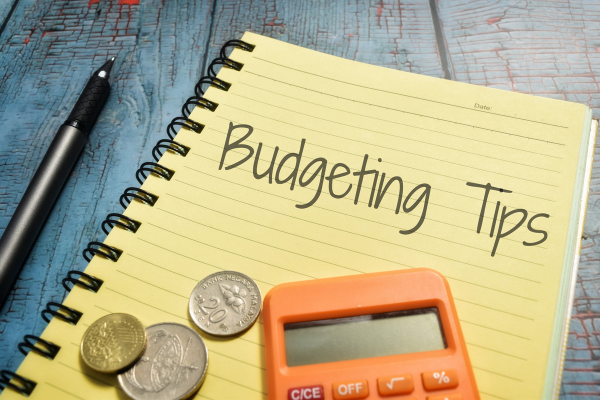
Budgeting Tips
Practical Budgeting Tips for Financial Success
Budgeting is an essential skill that can help you achieve financial stability, save for future goals, and avoid unnecessary debt. A well-structured budget allows you to take control of your finances and make informed decisions about your money. Here are some practical budgeting tips to guide you toward financial success.
1. Set Clear Financial Goals
Establishing specific financial goals can provide direction and motivation to stick to your budget.
Types of Financial Goals:
- Short-term goals: Save for a vacation, pay off a small debt, or build an emergency fund.
- Medium-term goals: Save for a car, a home down payment, or further education.
- Long-term goals: Plan for retirement, buy a home, or start a business.
2. Track Your Income and Expenses
Understanding where your money comes from and where it goes is crucial for creating an effective budget.
Steps to Track Income and Expenses:
- List all sources of income: Include salary, bonuses, freelance work, and any other income streams.
- Categorize and record expenses: Track fixed expenses (rent, utilities) and variable expenses (groceries, entertainment).
- Use tools: Utilize budgeting apps, spreadsheets, or financial software to keep track of your finances.
3. Create a Realistic Budget
A realistic budget aligns with your actual income and expenses, making it sustainable over time.
How to Create a Budget:
- Calculate total monthly income: Add up all sources of income.
- Total your monthly expenses: Sum up all your fixed and variable expenses.
- Compare income and expenses: Ensure that your expenses do not exceed your income.
- Adjust as necessary: If expenses are higher than income, look for areas to cut back.
4. Prioritize Essential Expenses
Make sure your essential needs are covered before allocating money to non-essential expenses.
Essential Expenses:
- Housing: Rent or mortgage payments, property taxes, insurance.
- Utilities: Electricity, water, gas, internet, phone.
- Groceries and transportation: Food, gas, public transportation.
- Insurance: Health, auto, life insurance.
5. Build an Emergency Fund
An emergency fund is crucial for financial security, providing a buffer for unexpected expenses.
Tips for Building an Emergency Fund:
- Start small: Aim to save at least $1,000 initially.
- Set a goal: Aim to save 3-6 months’ worth of living expenses.
- Automate savings: Set up automatic transfers to your emergency fund.
6. Reduce Unnecessary Expenses
Cutting back on non-essential expenses can free up money for savings or debt repayment.
Ways to Reduce Expenses:
- Dining out: Cook at home more often.
- Subscriptions: Cancel unused subscriptions and memberships.
- Entertainment: Look for free or low-cost entertainment options.
- Utilities: Implement energy-saving practices to lower bills.
7. Pay Off Debt Strategically
Managing and reducing debt is essential for financial health.
Strategies for Paying Off Debt:
- Debt snowball method: Focus on paying off the smallest debts first to build momentum.
- Debt avalanche method: Focus on paying off debts with the highest interest rates first to save on interest.
- Consolidate debt: Consider consolidating high-interest debt into a lower-interest loan.
8. Save and Invest Regularly
Saving and investing are key to building wealth and achieving long-term financial goals.
Tips for Saving and Investing:
- Automate savings: Set up automatic transfers to savings and investment accounts.
- Take advantage of employer plans: Contribute to employer-sponsored retirement plans, such as a 401(k).
- Diversify investments: Spread your investments across different asset classes to reduce risk.
9. Review and Adjust Your Budget Regularly
Regularly reviewing your budget ensures it remains aligned with your financial goals and circumstances.
How to Review Your Budget:
- Monthly review: Check your income and expenses each month to ensure you’re staying on track.
- Adjust as needed: Make adjustments to your budget based on changes in income, expenses, or financial goals.
- Annual review: Conduct a thorough review of your budget and financial goals at least once a year.
10. Seek Professional Advice
A financial advisor can provide personalized advice and help you create a budget tailored to your specific needs and goals.
Benefits of Professional Financial Advice:
- Expert guidance: Access to professional expertise and insights.
- Customized plans: Personalized financial strategies based on your unique situation.
- Ongoing support: Regular check-ins and adjustments to your financial plan as needed.
Conclusion
Budgeting is a powerful tool that can help you take control of your finances, reduce stress, and achieve your financial goals. By setting clear financial goals, tracking your income and expenses, creating a realistic budget, prioritizing essential expenses, building an emergency fund, reducing unnecessary expenses, paying off debt strategically, saving and investing regularly, reviewing and adjusting your budget, and seeking professional advice, you can master the art of budgeting and pave the way to financial success. Start today, and watch your financial health improve over time.



